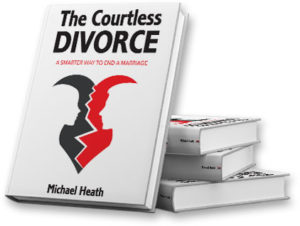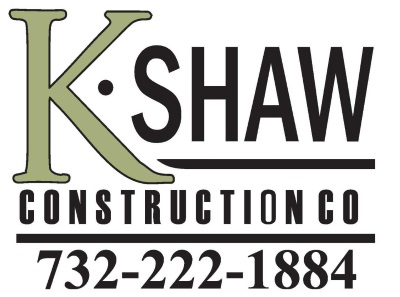Marriage Over, Consider Options
Growing up in Monmouth Beach I remember that my parents had what you’d call a “good marriage.” Mostly because my mom — as the daughter and sister of physicians — knew “the calling” and respected my father’s doctor career. She recognized that his practice and patients took priority. Not all spouses are as understanding.
After my mother died very young (age 61 from cancer) my father ended up getting married twice more; one was happy and one wasn’t. During the one split-up he was smacked around pretty good (emotionally, that is) and got a huge legal bill for the experience. Currently, the chances that a marriage will end in divorce, according to Psychology Today, is about 45%.
Michael J. Heath, a Monmouth Beach resident and author, is now trying to help people on the difficult matter of divorce. He says couples seeking to end their marriages should “work things out, don’t fight things out.”
Here are some of his worthwhile insights about the benefits of collaborative law and mediation from his new book and website, TheCourtlessDivorce.com:
“Anyone contemplating a divorce is likely thinking of hiring legal counsel. Some people may do like I did and simply use the recommendation of a friend while others might search the internet to gather information before choosing representation. Both are good ways and any due diligence has a significant advantage over dialing a phone number found on a legal ad. But there is another option that most people should consider and that is not retaining a lawyer at all, at least not initially.
“Divorce is a game played by lawyers.”
—Cary Grant
I am not talking about do-it-yourself divorce. DYI divorces should be rare and even when one is performed an attorney should review the documents before submitting it to the court. What I am proposing is that if someone’s marriage is ending, they hold off obtaining legal counsel until mediation and collaborative law is considered. Let me emphasize the word ‘before’ because once one spouse pays a legal retainer and papers are served, it gets real difficult to halt the litigation train steaming out of the station. However, if the couple finds mediation or collaborative law right for them then it’s almost certain that they will save a lot of money and emotional grief.
Divorce litigation is an adversarial system (win-lose) where both sides fight for their positions in an ugly arena of dueling attorneys and court battles. Too often finances become exhausted or emotions end up so strained that the couple surrenders and accepts a settlement neither one wants (lose-lose). On the other hand, mediation and collaborative law is based on the concept of recognizing people’s interests and finding ways to achieve solutions in a spirit of respect and mutual problem-solving. Mediators and collaborative lawyers conduct meetings where the interests of both the husband and wife are recognized and brainstorming is used to find ways of satisfying those interests (win-win).
There are additional benefits to using an alternative to divorce litigation. In mediation or collaborative law, a free exchange of information cuts the cost of discovery. In the case where a specialist is required to provide an opinion (e.g. real estate, child custody) the expert is shared rather than each spouse hiring his/her own. Three and four-way meetings are less formal than court and are conducted out of the public eye. And since there is a spirit of cooperation, the process is normally shorter which also helps it to be less expensive.
Mediation and collaborative law aren’t for everyone. Those experiencing serious domestic violence, dissipation of complex assets or threats to abscond with the children should seek traditional counsel in addition to contacting the proper authorities. However, if a couple is in a position to work it out instead of fighting it out, they will be in greater control of their future. And that will be better for both their pocketbooks and emotional well-being.”
All makes sense.
For more information, contact Mike Heath at TheCourtlessDivorce.com.





